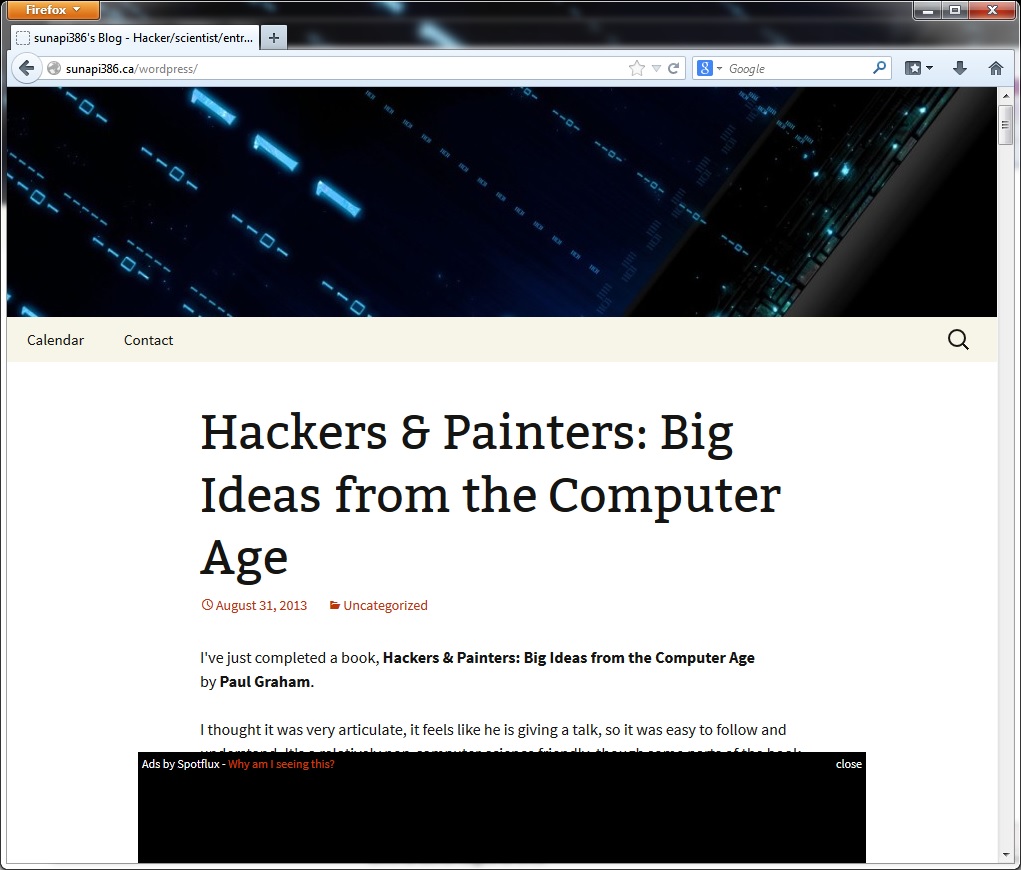I’ve been on internship since September, and I’ve not had this feeling for a while. Not since when I was on vacation in August and finished reading the entire course materials for CS 458 Security! I was wondering how to get it back… reflecting back to my exam cramming days, where I’d be up till 3 or 4 am and in a trance, studying. I thought coffee/tea/energy drinks would help get this kind of concentration, but it doesn’t. This kind of concentration is rare, and magical. I think it stems from curiosity!
Continue reading Internship and curiosity
Five year vision
I’m reading up on amateur radio licenses. I’ve always been curious about it, I’m planning to get a radio set – and talk to other people. Similar to the way it was done in the movie Contact. I’m fascinated by space, and radio is one of the things the space shuttle predominantly uses to communicate with earth. Also the thought of being able contact with aliens is nice – however unfeasible.
Continue reading Five year vision
Accessing VPN
Discovered this great free VPN service called spotflux – it is so easy to use. On public networks, every website you visit can be tracked – VPN tunnels your traffic to spotflux servers. Though – the price you pay is having ads getting injected into unsecured html (http).
For example, there is a black rectangle. For me, it looks like this (with adblock enabled):
Hackers & Painters: Big Ideas from the Computer Age
I’ve just completed a book, Hackers & Painters: Big Ideas from the Computer Age by Paul Graham.
I thought it was very articulate, it feels like he is giving a talk, so it was easy to follow and understand. It’s a relatively non-computer-science friendly, though some parts of the book were rather technical. The chapters didn’t necessarily follow one another, so each chapter felt like reading a separate essay. As a result, the book overall didn’t flow well. Individual chapters reads great, each with its introductions, arguments, and takeaways.
Several things in the book that caught my attention:
Continue reading Hackers & Painters: Big Ideas from the Computer Age
Interesting Consequences of Undecidability
In the book Introduction to Automata Theory — Languages and Computation. The following paragraph is interesting:

What this means is that if we were given a source code of a program, we would be unable to decide what the program does. Only lexical or syntactical properties of the program may be decided. This is interesting because it’s really counter-intuitive! You’d think that given the source code and read through it we can systemically figure out what it does. Not true. This means is that another program, B, cannot figure out what program A does.
Interestingly enough, this implies that no anti-virus will ever be totally effective, or any other types code detection software, because it is undecidable what a program does. There will always exist programs which can’t be detected. I knew this when I was young, from the fact that AV programs always update their virus databases, so naturally that meant there was no systemic way to detect mischievous programs. I wondered if the updates would ever stop in the future. Now I know this will never happen because of this consequence of undecidability.
